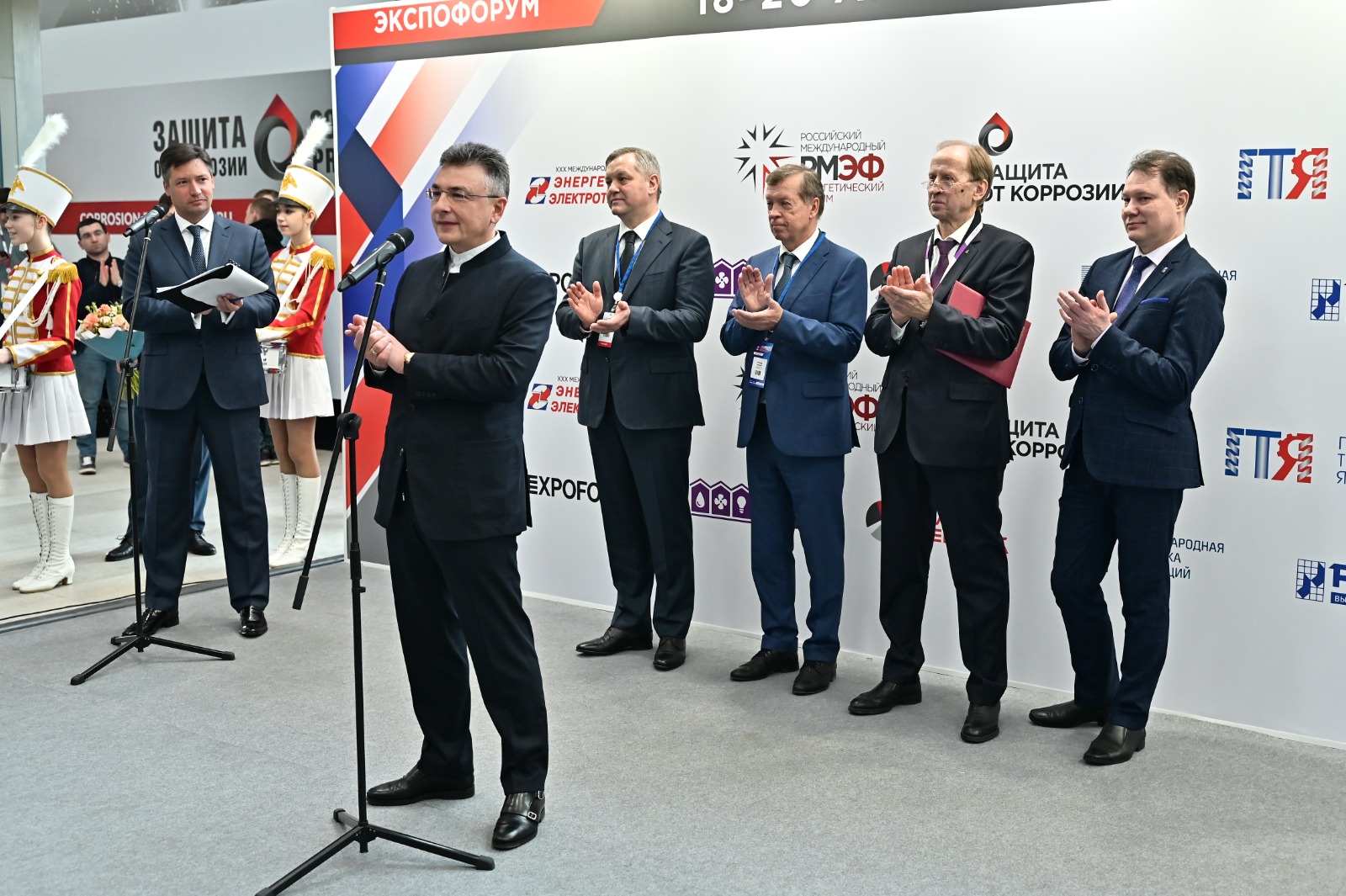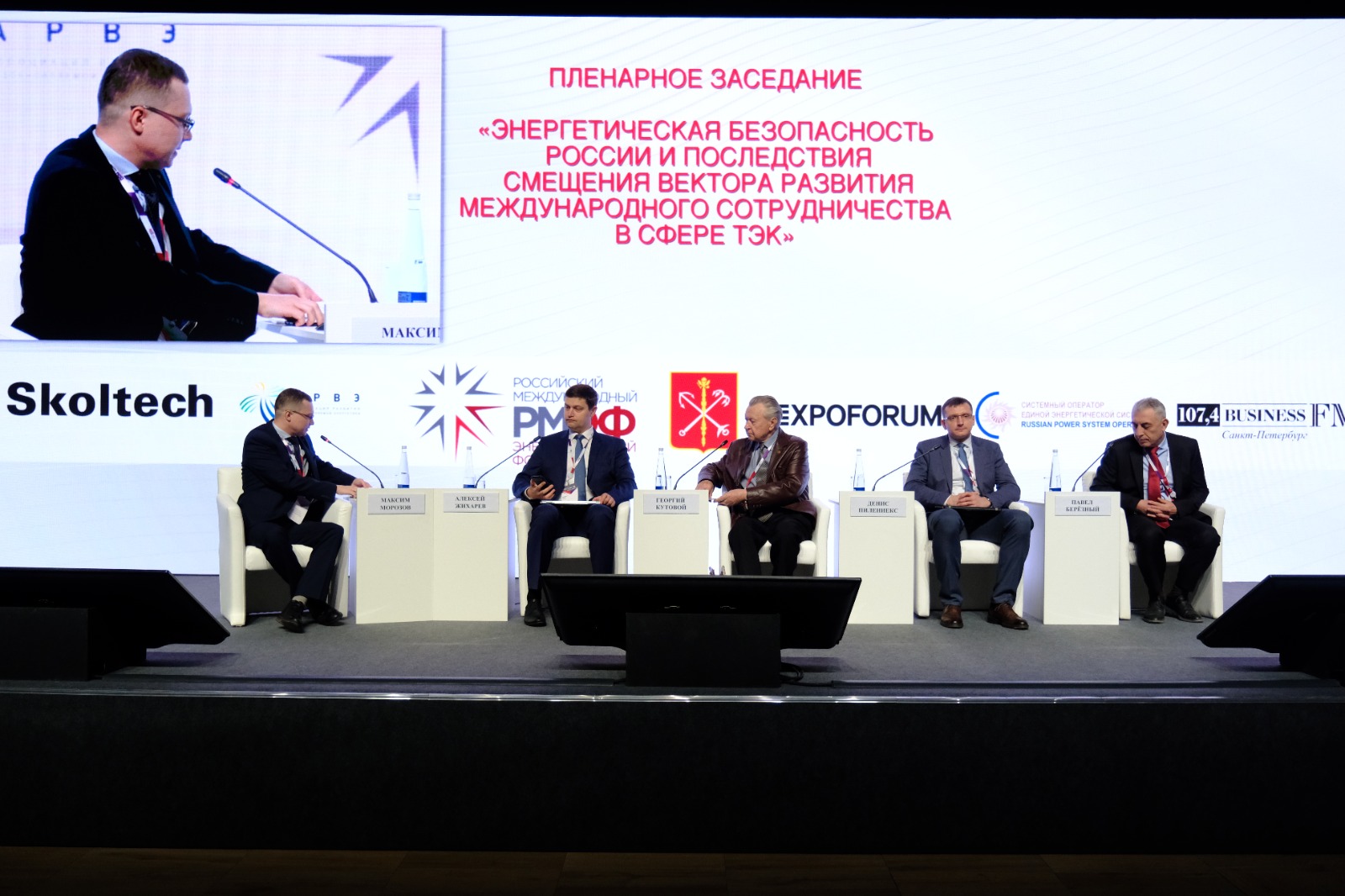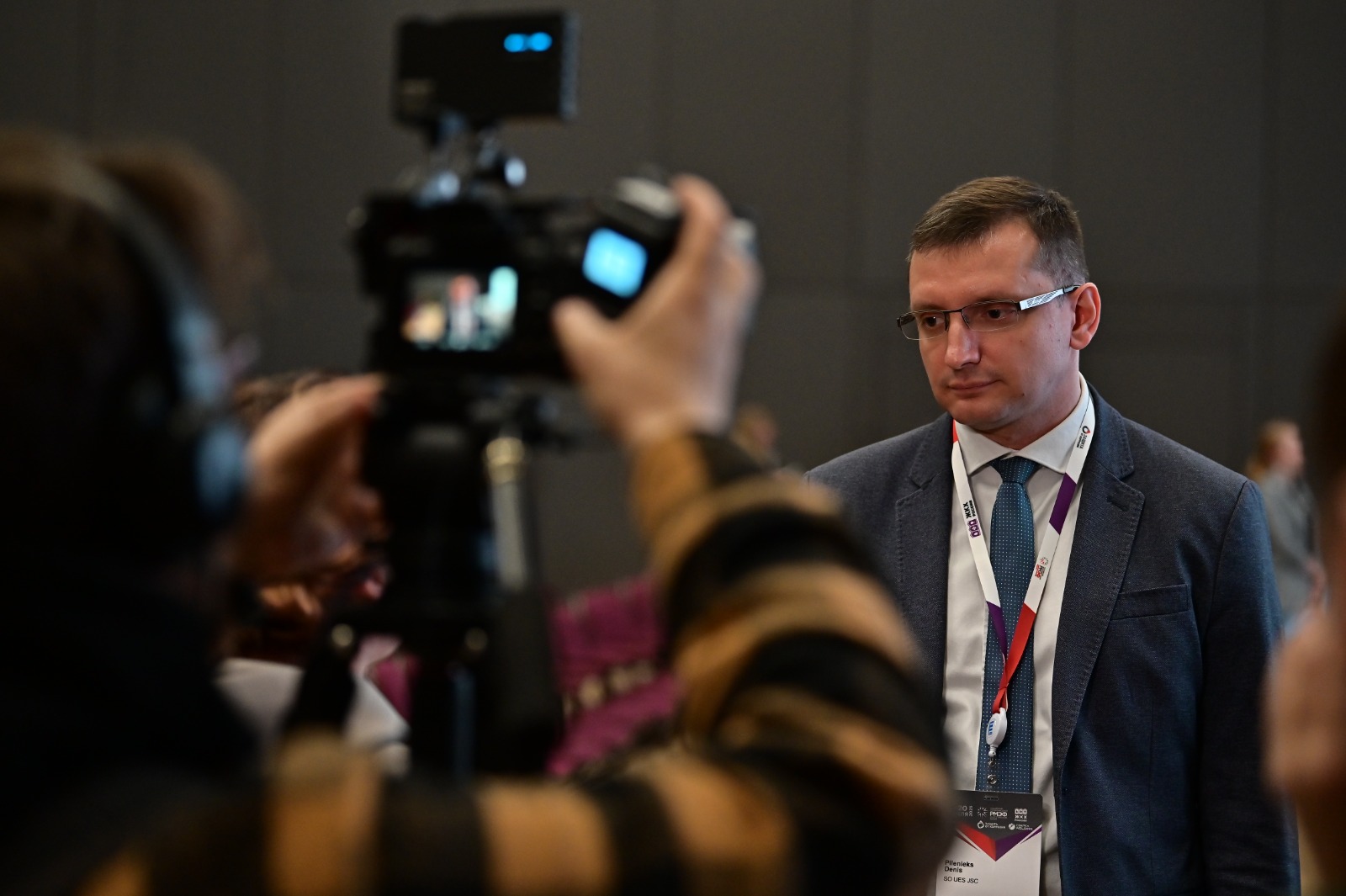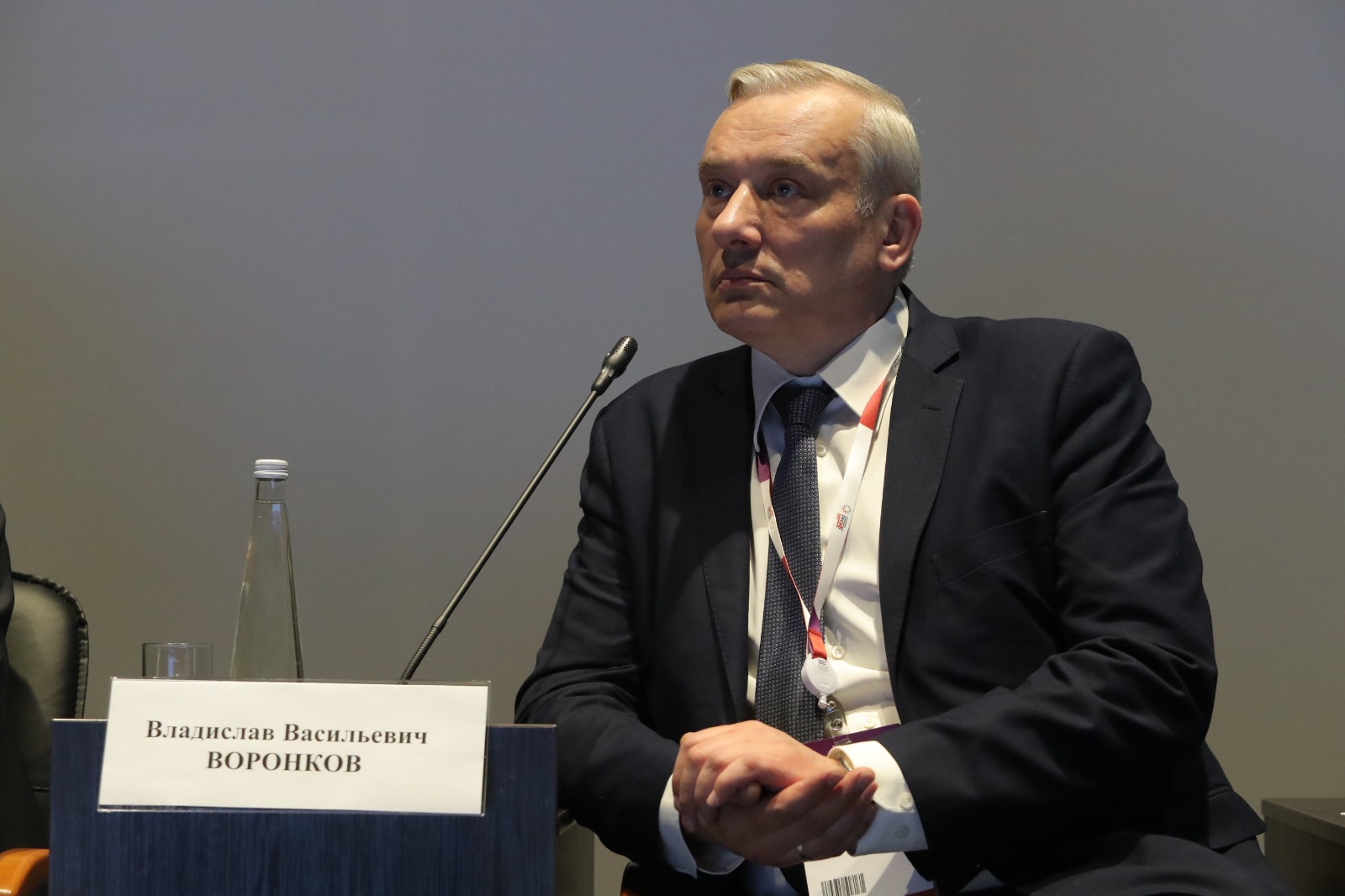The XI RIEF finished at the EXPOFORUM
In Saint Petersburg, the Russian International Energy Forum (RIEF), one of the largest and most significant events in the fuel and energy sector, which annually gathers thousands of participants, has come to its end.
More than 20 events were held within the business and congress program of the RIEF-2023. These were various conferences, round tables, discussions, presentations. They were attended not only by Russian companies, but also by representatives of China, Belarus, Kazakhstan, and Uzbekistan. And the multi-project Business Contact Center was the platform for more than 1.5 thousand meetings of buyers and suppliers.
Key issues discussed during the RIEF were sustainability of energy development in Russia, import substitution, expansion of international cooperation in the fuel and energy sector, and the future of low-carbon segment in the energy industry.
The industry experts highly appreciate significance of the RIEF. “Today, the RIEF has rightfully had the status of the key annual event in the Russian energy sector”, Nikolay Rogalev, President of NP “NTS UES”, is confident.
“The platform of the Russian International Energy Forum has traditionally been the important permanent mechanism for interaction between heads of energy companies, industry experts, representatives of government agencies and public organizations on the wide range of energy policy issues”, said Dmitry Vologzhanin, Director of the Council of Energy Producers Association.
“In the current geopolitical conditions, it is increasingly important to unite efforts of the largest companies in the energy industry so that Russia could maintain its position in the world market”, said Sergey Voronkov, CEO of the EF International Ltd.
In his opinion, one of economic growth foundations is energy saving. “Therefore, the industry modernization, and introduction of the latest technologies in its various branches to increase energy efficiency, will be one of the most urgent tasks in the near future”, Sergey Voronkov added.
At the Plenary Session of the Forum, experts discussed challenges and threats to Russia’s energy security. Russia is still largely dependent on foreign equipment in the fuel and energy sector, but by 2025, the share of domestic manufacturers in this segment is planned to increase to 80 %. Despite external restrictions, the Russian energy system continues to be updated: only last year, facilities with a total capacity of more than 2 thousand MW were put in operation and modernized in the country.
Experts call green energy one of the most important segments of the fuel and energy sector. Aleksey Zhikharev, Director of the Association for Development of Renewable Power Engineering, said that renewable generation facilities operated in more than 50 regions of the country.
There are also a number of problems in the industry. One of them was articulated by Georgy Kutovoy, the expert of NON-PROFIT PARTNERSHIP “SCIENTIFIC AND TECHNICAL COUNCIL OF THE UNIFIED ENERGY SYSTEM”, Deputy Chairman of the Committee for Energy Strategy and Development of the Fuel and Energy Complex of the Chamber of Commerce and Industry of the Russian Federation. “Today, the price per kilowatt-hour is not the balance of economic interests, but has turned into our economic development brake, a risk factor for the country’s economic security”, the expert says.
According to Denis Pilenieks, Development Director of the Unified Energy System, Head of the Directorate of “System Operator of the Unified Energy System” JSC, other core problems of the industry are personnel shortage and aging of the generating equipment, the average age of which is about 30 years.
The RIEF participants also demonstrated their new developments. For example, State Unitary Enterprise “Fuel and Energy Complex of Saint Petersburg” (SUE “TEK SPb”) demonstrated the system of robotic diagnostics to search for incipient defects, and VR glasses, which make it possible to visit inside a gas boiler room.
SUE “Vodokanal of Saint Petersburg” presented the water metering device of the increased accuracy class, as well as test equipment for metrological verification of metering devices and flowmeters by the non-dismounting method.
Saint Petersburg State Budgetary Institution “Lensvet” (SPb GBU “Lensvet”) showed the interactive map of development of outdoor lighting, due to which citizens receive up-to-date information on the work carried out in the city.
“Transneft – Verkhnyaya Volga” JSC demonstrated automated combined burners with modulating control, which operate using three types of fuel: oil, diesel and natural gas.
Four exhibitions were held on the same venue, simultaneously with the RIEF-2023: “Energy Industry and Electrical Engineering”, “Welding”, “Rustproofing”, as well as “Housing and Communal Services of Russia”. Within the projects, more than 20 events were held, which were attended by representatives of government, business and the expert community.
Discussing problems of housing and communal services, participants of the Exhibition with the same name noted importance of improving legislation regarding managing companies and other sectors of housing and communal services. According to Vladislav Voronkov, General Director of NP PZHK “Mezhregionrazvitie”, the most pressing issues include, inter alia, the lack of the mechanism for collecting payment for housing and communal services from apartment owners. The amount of the arrears for one apartment can reach up to 1 million rubles in various regions of Russia, and debts of 300 thousand rubles will not surprise anyone, Vladislav Voronkov said.
To remedy the situation, it is needed to develop mechanisms for effectively collecting debts for housing and communal services, as well as to introduce the mechanism for confiscating the debtors’ property because of arrears for these services, the expert noted.
Andrey Ryabokon, deputy of the Legislative Assembly of Saint Petersburg, told about other legislative problems in the housing and communal services sector. According to him, under the current legislation, families that have owed payment for housing and communal services cannot receive subsidies to pay for these services. However, in many cases, receiving subsidies could solve problems with the arrears. For example, subsidies to families having the debt could be immediately transferred to the managing companies, and not to debtors directly, Andrey Ryabokon suggests.
Essential issues in the segment of welding and metal processing were discussed by experts of the exhibitions “Welding” and “Rustproofing”. It is unusual, that, for the first time, the collective stand of 12 companies from China was presented at the Exhibition, which confirms interest in development of Sino-Russian relations.
One of the problems in the industry is poor quality of training specialists. “Today, the average age of teachers training welders is 70 years”, said Sergey Petrov, Chief of the Head Center for Welding and Welding Technologies for Transport, operating at the Russian University of Transport, during the RIEF Plenary Session.
“Over the past 14 years, we have seen degradation in training normal engineering personnel in welding. To stop this, we need to talk frankly about the situation in education, otherwise nothing good will happen”, the expert said.
Besides, Russian manufacturers of welding materials and equipment have not yet been able to take advantage of the opportunities that have arisen due to foreign suppliers’ departure from Russia, because of sanctions. According to Sergey Kuznetsov, Technical Director of the National Welding Control Agency (NAKS), import substitution can take place in the industry only as the consequence of changing duties. “Today, the duties on those materials that Russian companies are able to produce, are minimal. And the duties for those components that the domestic industry needs and cannot replaced yet, are high. I would like it to be the opposite”, the expert noted.
Participants of the XI International Exhibition “Welding” also discussed the welding production specialist certification system. As the NAKS representatives noted, this system constantly transforms considering the economic and geopolitical situation, and currently requires another revision of the legislative framework, within which its functioning is based.
“In particular, the next changes to the welders’ qualification certification system are being actively developed, and all the industry participants can submit their proposals on this issue to the relevant communities”, the NAKS representatives said.
In turn, at the XXV International Exhibition-Congress “Rustproofing”, the experts stated that Russia needs the nationwide program for combating this phenomenon. According to Vasily Bocharov, CEO of Tsinker LLC, “Corrosion is a silent enemy of the Russian economy”: it annually causes the damage amounting to 3–5 % of GDP”.
Economic losses from metal corrosion are huge, significant material and financial resources are spent on combating corrosion of pipelines, bridges, marine structures, ships. “Given the possible corrosion, we have to overestimate the strength and cross-sections of load-bearing structures. This increases metal consumption, and leads to additional economic expenses. Corrosion losses account for about 30 % of the annual steel production, and about 10 % of the corroded metal is irretrievably lost in the form of rust”, said Vladislav Polkin, CEO of the Zinc Development Center.
Denis Dyachenko, Head of the Specialized Institute for Corrosion Studies and Materials Science of “NK Rosneft” PJSC, also stated that rustproofing requires large financing. “Corrosion losses are measured in fairly large amounts – up to 3.5 % of GDP. If we consider all countries, the figure will be colossal. The whole logic of corrosion management can be reduced to the management of specific corrosion processes at all stages of the life cycle of pipeline equipment”, commented Denis Dyachenko.
It is important to note that the RIEF program included not only congress and business events. In framework of the Forum, excursions to the South-Western Thermal Power Plant and the Nevsky Plant, as well as the welcome reception, were organized for its participants.

 Calendar
Calendar
 Online application
Online application
 Map
Map
 How to get
How to get






